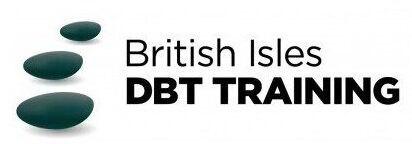
Online DBT
TREATING TRAUMA AND C-PTSD WITH DBT






Trauma and Complex Post Traumatic Stress Disorders are prevalent in those with Emotional Unstable Personality Disorder. Quite often, a person who has been diagnosed with EUPD as an adult has experienced an unstable childhood during this time; changes took place in the brain, which puts the person in an almost constant state of ‘fight’ or ‘flight’ mode.
However, it is important to recognise that trauma and C-PTSD can develop at any time in a person’s life. Somebody who has had a stable childhood and has no mental health issues or related history can experience a traumatic or stressful event.
These events can then cause changes in the adult brain and result in the common symptoms of trauma and C-PTSD.
What are the signs of Trauma and PTSD?
After experiencing a traumatic event, many people experience strong physical or emotional reactions.
Over a few days or weeks, most people’s feelings dissipate. For some individuals, however, the symptoms of psychological trauma may grow more severe and last longer.
A traumatic event may result in this and existing emotional support, past and present stresses, personal traits, and available coping mechanisms. Symptoms of trauma include:
The list above is not exclusive; there are many other signs of physical, mental, and emotional trauma.
Children and adults who have repeatedly experienced traumatic events, such as violence, neglect or abuse, may develop complex PTSD.
C-PTSD is more challenging to treat if any of the following apply:
As in PTSD, complex PTSD can include the following symptoms:
How DBT helps those with Trauma and C-PTSD
Dialectical Behavioural Therapy is one of the most effective treatment options for those with trauma or C-PTSD.
DBT was initially developed to treat borderline personality disorder (BPD). Although people with PTSD and BPD have different symptoms, they share some of the same issues, such as:
DBT aims to correct emotional management problems as well as problem behaviours that they cause. DBT therapists use and teach the following four types of skills:
It is often difficult for people with complex PTSD to trust other people. You may be offered more therapy sessions than usual so that you can develop a trusting relationship with your therapist.
In DBT, we go at a comfortable pace and form relationships with clients based on trust, no matter how long this process takes.
Treatment for Post-Traumatic Stress Disorder (PTSD) and other traumas can be effective with Dialectical Behavioral Therapy (DBT). DBT can be even more effective when explicitly adapted to treat PTSD.
Complex post-traumatic stress disorder can be treated despite its inherent barriers to recovery. Someone can overcome their all-too-familiar barriers and triggers with the help of a compassionate guide.
Asking for help is the first step toward living a more fulfilling life. While trauma and C-PTSD take much longer to treat than other issues, they are treatable.
Our complete DBT programme is available for anybody who finds their trauma or PTSD debilitating.
Whether you have been diagnosed or suspect you need help, contact us today to discuss DBT treatment options.

SPEAK TO OUR TEAM
Start off with a call where you can ask any questions, find out more about what we have on offer, and book in your initial assessment.

BOOK YOUR ASSESSMENT
Use the online booking system below or call our team who will find a time that suits you, for an online hour long assessment via Zoom or Vsee. Same week appointments available.

DBT TREATMENT PACKAGE
Start gaining mastery over your behaviour, thoughts, and emotions with our personalised DBT treatment packages. Ready to start the process?
Want to find out more about DBT, or are you ready to book in an assessment?
We are here to help, so send us your details via the form attached, and we will get back to you with the information you need.
Want to read about DBT in the meantime, then check out our DBT brochure below.
Want to get straight in contact? Call us on our number below or send us an email and a member of our team will get straight back to you.
Phone
0203 432 5909ADDRESS
Suite 788
Unit 3A
34-35 Hatton Garden
Holborn
London
EC1N 8DX
UK